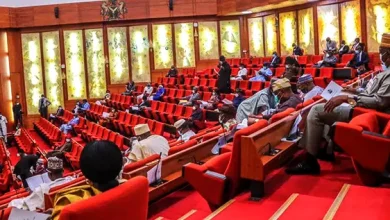
The World Bank is poised to approve $632 million in loans to Nigeria on Monday, despite ongoing concerns over the country’s increasing debt profile. The new loans are aimed at supporting critical sectors such as nutrition and education.
According to information obtained from the World Bank’s official website, the two loans up for approval today are part of a broader strategy to address key developmental challenges in the country. The first loan, valued at $80 million, is earmarked for the Accelerating Nutrition Results in Nigeria 2.0 project, while the second, a much larger sum of $552 million, is set aside for the HOPE for
Both projects are currently in the final stages of negotiation and are expected to receive approval later today. These loans are part of the World Bank’s continued commitment to supporting Nigeria’s developmental priorities, especially in the areas of healthcare, education, and community resilience.
This loan approval follows another recent development, where the World Bank granted Nigeria a $500 million loan last Friday for the Community Action for Resilience and Economic Stimulus Programme. The loan, approved on March 28, 2025, aims to provide essential economic support to vulnerable communities by offering grants to households and small businesses facing economic hardships, particularly in the wake of inflation and high living costs.
This funding will bolster Nigeria’s efforts to stimulate economic recovery and enhance food security for the most affected populations. However, it comes amid a delay in the disbursement of funds for an earlier World Bank loan project—the National Social Safety-Net Program Scale Up, which was approved in December 2021.
The delay in the disbursement of funds for the $800 million loan, approved for the National Social Safety-Net Programme, has raised concerns. As of now, only about $315 million of the loan has been disbursed, with the remainder withheld due to alleged fraud within the programme. Mismanagement and misuse of funds, including the suspension of former ministers over allegations of fraud, have contributed to the delay.
Further investigations are underway to resolve these issues, and the World Bank has imposed sanctions on individuals and businesses found guilty of fraud.
Despite the influx of loans from the World Bank, Nigeria’s growing debt profile remains a source of concern. The country has already accumulated significant debt through various loans from the World Bank, totaling $7.45 billion under President Bola Tinubu’s administration alone. This is in addition to the existing debt obligations, with the World Bank accounting for a substantial portion of Nigeria’s external debt, which stood at $17.32 billion as of Q3 2024.
The rising debt burden has raised alarms, especially considering Nigeria’s external debt servicing, which amounted to $5.47 billion over the past 14 months, according to the Central Bank of Nigeria. These concerns are compounded by inflation, high living costs, and the country’s fiscal pressures.
In response to Nigeria’s growing debt burden, the Minister of Finance and Coordinating Minister of the Economy, Wale Edun, has emphasized the government’s focus on improving revenue generation and attracting private sector investments. Edun highlighted efforts to optimize assets and reduce borrowing from commercial markets.
As the World Bank prepares to approve additional loans for Nigeria, the country faces a delicate balancing act between securing necessary funding for development and managing its growing debt burden. While the loans provide much-needed resources for key sectors like education, nutrition, and economic resilience, experts warn that the government must ensure efficient use of the funds to avoid worsening the nation’s fiscal situation.





